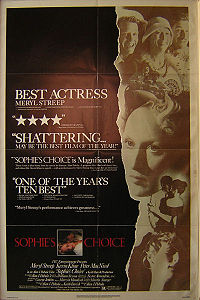Microsoft offers a Sophie's Choice


Microsoft is for that kind of choice.
In a blog post later copied to GovLoop, Microsoft's Dan Kasun lays it out.
"Choice has been one of Microsoft's strongest messages for years," he writes, and Microsoft loves freedom as much as anyone. Kasun is riffing here off a recent piece by Matt Asay, Software Industry's False Choice.
Matt now works as COO of Canonical (Ubuntu), of course, which may be why Kazun is so passionate on this score. He sees Microsoft and Ubuntu as equal competitors. In fact Microsoft is an elephant and Ubuntu just one of many mouse-sized alternatives.
In the context of the discussion, Kasun writes, Microsoft is giving users a choice on what data they want to keep and what they want in the cloud, while Google does not really offer that choice. See, choice. Choice is good. (By naming Google rather than Ubuntu, his real target, Kazun also makes this seem a choice between equals.)
Data is liberated, Kasun writes, because even though it's stored in a proprietary format it's "exposed" to other, more open formats and Microsoft offers an Open Specification Promise to guarantee it.
Open source is completely orthogonal to the choice discussion, Kazun writes, pointing to Microsoft's Open Government Data Initiative as proof.
But here's my problem with that, and here is why open source is not orthogonal at all, but part of the same dimension.
You get one choice. You buy Microsoft and you're locked into Microsoft. You can't go back.
In Microsoft's world its formats and open source are the two children, and you get to make one choice. Then you have to move on.
You can argue that Microsoft and open source are two equally valid choices, of course, by noting that the choice has been made already. Every government is trapped, at least in part, in a world made by Microsoft. Every government, and enterprise, has already killed one of the children.
That may be true. And it may be that's what's orthogonal. Because only open source lets that dead kid live again. Because you can see the code, and change the code, with open source, you can recover your independence, all of your free will.
Even Microsoft's open hand comes with a price.